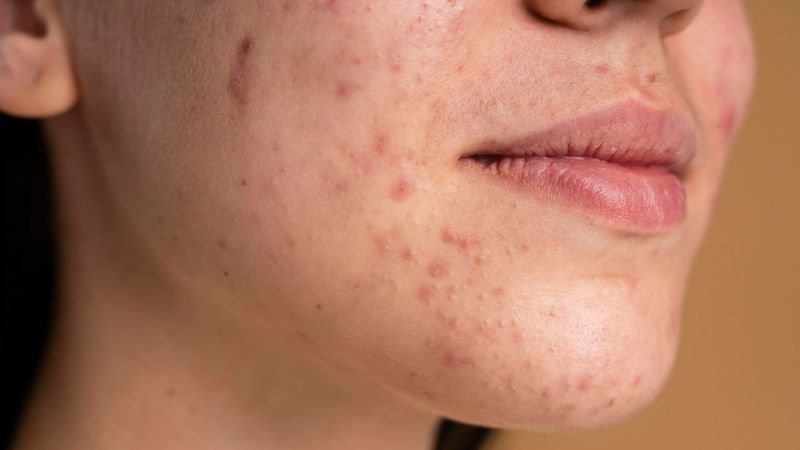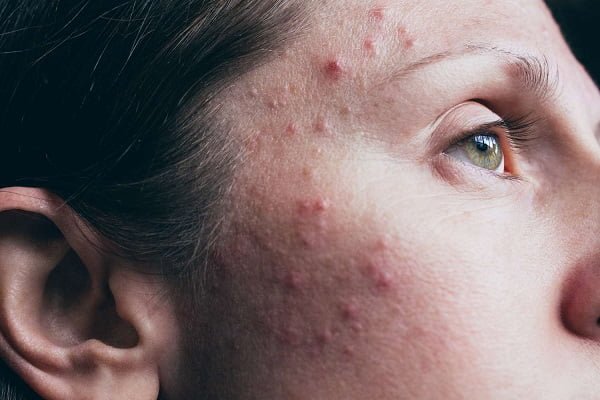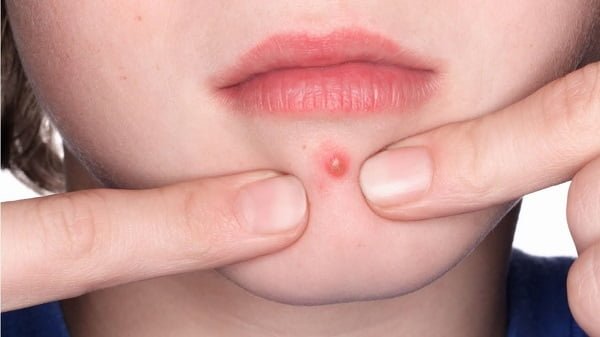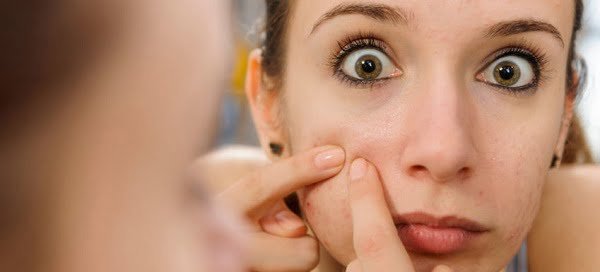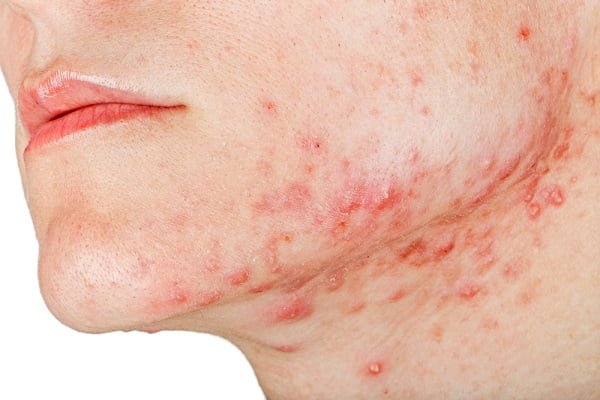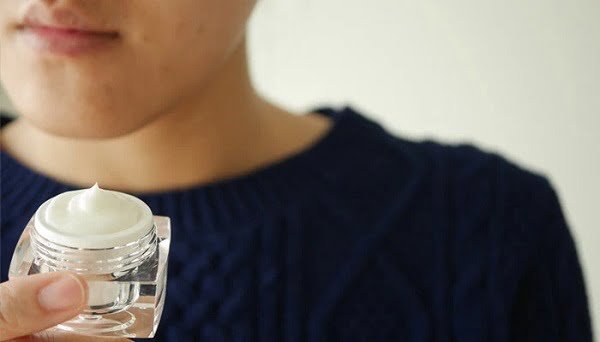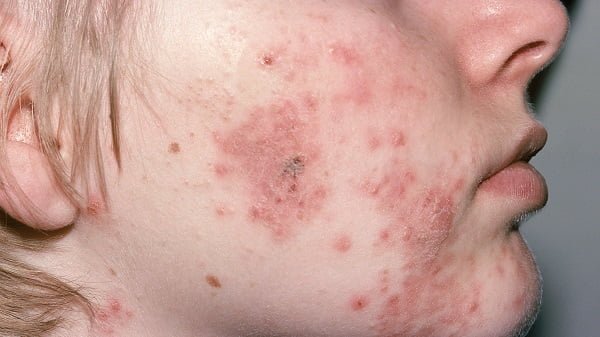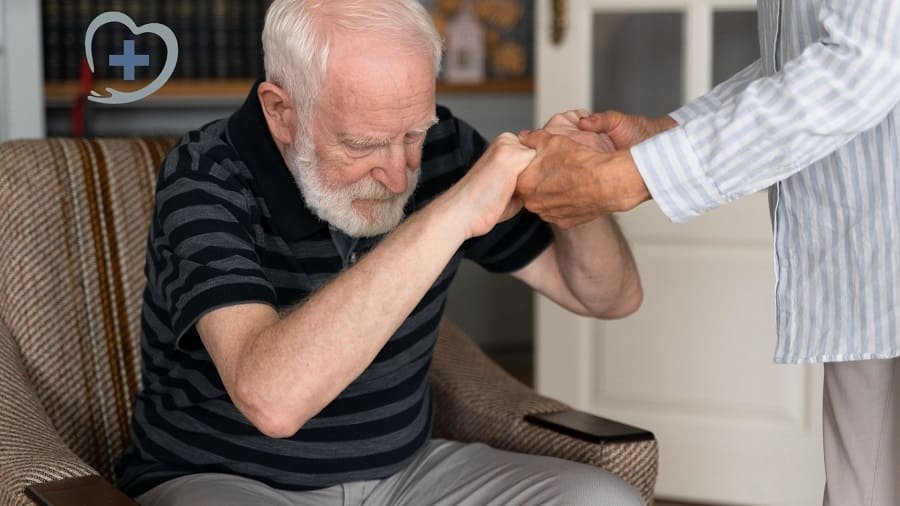Introduction
Dealing with hormonal cystic acne can be frustrating and challenging, but there are several effective home remedies and lifestyle changes that can help manage this condition. Hormonal cystic acne is characterized by deep, painful cysts that develop under the skin, often triggered by hormonal fluctuations. In this blog, we’ll explore natural treatments and practical tips to alleviate hormonal cystic acne and promote clearer, healthier skin from the comfort of your home.
Understanding Hormonal Cystic Acne:
Hormonal cystic acne occurs when hormonal fluctuations, such as those associated with puberty, menstruation, pregnancy, or hormonal disorders like polycystic ovary syndrome (PCOS), lead to increased oil production and inflammation in the skin’s oil glands. This results in the formation of large, tender cysts deep within the skin, which can be challenging to treat and may leave behind scars if not managed properly.
Home Remedies for Hormonal Cystic Acne Treatment:
- Apple Cider Vinegar: Apple cider vinegar has antibacterial and anti-inflammatory properties that can help reduce inflammation and kill acne-causing bacteria. Dilute apple cider vinegar with water and apply it to the affected areas using a cotton ball. Leave it on for 10-15 minutes before rinsing off with water.
- Tea Tree Oil: Tea tree oil is a natural antiseptic that can help reduce inflammation and kill acne-causing bacteria. Mix a few drops of tea tree oil with a carrier oil like coconut oil or jojoba oil and apply it to the cystic acne lesions using a cotton swab. Leave it on overnight and rinse off in the morning.
- Turmeric Paste: Turmeric has anti-inflammatory and antioxidant properties that can help reduce swelling and promote healing of cystic acne lesions. Mix turmeric powder with water to form a paste and apply it to the affected areas. Leave it on for 15-20 minutes before rinsing off with water.
- Honey and Cinnamon Mask: Honey has antibacterial properties, while cinnamon has anti-inflammatory properties. Mix honey and cinnamon powder to form a paste and apply it to the cystic acne lesions. Leave it on for 10-15 minutes before rinsing off with water.
- Cold Compress: Applying a cold compress to cystic acne lesions can help reduce inflammation and soothe pain. Wrap an ice pack or a bag of frozen peas in a towel and apply it to the affected areas for 10-15 minutes at a time.
Practical Tips for Managing Hormonal Cystic Acne at Home:
- Maintain a Healthy Diet: Avoiding sugary, processed foods and incorporating more fruits, vegetables, and whole grains into your diet can help reduce inflammation and balance hormone levels, which may improve cystic acne symptoms.
- Stay Hydrated: Drink plenty of water throughout the day to keep your skin hydrated and flush out toxins from your body, which can help prevent acne breakouts.
- Practice Stress Management: Stress can exacerbate hormonal imbalances and trigger acne breakouts. Practice stress-reducing activities such as yoga, meditation, deep breathing exercises, or spending time in nature to promote relaxation and hormonal balance.
- Avoid Harsh Skincare Products: Avoid using harsh skincare products that can irritate the skin and exacerbate cystic acne.Optfor gentle, non-comedogenic cleansers, moisturizers, and sunscreen formulated for acne-prone skin.
- Get Adequate Sleep: Aim for 7-9 hours of quality sleep each night to allow your body to repair and regenerate, which can help improve overall skin health and reduce acne flare-ups.
Seeking medical attention for hormonal cystic acne is advisable in several situations:
- Severe Symptoms: If you experience severe pain, swelling, or inflammation associated with hormonal cystic acne, it’s essential to consult a dermatologist. Severe cystic acne lesions can cause significant discomfort and may require medical intervention to prevent complications.
- Persistent Acne: If your hormonal cystic acne persists despite home remedies and over-the-counter treatments, it may be a sign that your condition requires professional management. A dermatologist can assess your skin and recommend appropriate prescription medications or procedures to address your acne effectively.
- Scarring: Hormonal cystic acne has the potential to leave behind scars, especially if the lesions are deep and inflamed. If you notice scarring or changes in your skin texture as a result of cystic acne, consulting a dermatologist early can help prevent further scarring and improve the appearance of existing scars.
- Hormonal Imbalance: If you suspect that your cystic acne is related to an underlying hormonal imbalance, such as PCOS or thyroid disorders, it’s crucial to seek medical evaluation and management. Hormonal imbalances can contribute to persistent acne breakouts and may require hormonal therapy or other medical interventions to address.
- Emotional Distress: Cystic acne can take a toll on your emotional well-being and self-confidence, especially if it affects your appearance or causes social anxiety. If you’re experiencing significant emotional distress or depression related to your acne, consider seeking support from a healthcare professional, such as a dermatologist or therapist, who can offer guidance and treatment options to improve your quality of life.
In summary, seeking medical attention for hormonal cystic acne is warranted if you experience severe symptoms, persistent acne despite home remedies, scarring, suspected hormonal imbalances, or emotional distress. A dermatologist can assess your condition, provide personalized treatment recommendations, and help you achieve clearer, healthier skin. Don’t hesitate to reach out for professional help if you’re struggling with cystic acne—it’s essential to address the underlying causes and find effective solutions to manage your acne effectively.
Conclusion:
While hormonal cystic acne can be challenging to treat, incorporating natural home remedies and lifestyle changes into your skincare routine can help alleviate symptoms and promote clearer, healthier skin. By addressing hormonal imbalances, reducing inflammation, and practicing good skincare habits, you can effectively manage hormonal cystic acne at home and regain your confidence. If your acne persists or worsens, consider consulting a dermatologist for personalized treatment recommendations.
Faq related to "Hormonal cystic acne treatment at home"
Yes, hormonal cystic acne can be managed and alleviated with various home remedies and lifestyle changes. While it may require a multifaceted approach and patience, many individuals find relief from their symptoms by incorporating natural treatments into their skincare routine.
The time it takes to see improvement in hormonal cystic acne varies from person to person and depends on factors such as the severity of the acne, individual skin type, and consistency of treatment. While some individuals may notice results within a few weeks, others may require several months of consistent treatment to achieve clearer skin.
In general, home remedies for hormonal cystic acne are safe when used correctly and in moderation. However, it’s essential to be cautious and perform patch tests before trying new ingredients to ensure that they don’t cause irritation or allergic reactions. Additionally, some natural remedies may not be suitable for all skin types, so it’s essential to tailor your treatment to your specific needs.
Yes, adopting a healthy diet and lifestyle can play a significant role in managing hormonal cystic acne. Avoiding sugary, processed foods, reducing dairy and high-glycemic foods intake, staying hydrated, managing stress levels, and getting regular exercise can help balance hormone levels and reduce inflammation, which may improve acne symptoms over time.
While home remedies can be effective for managing hormonal cystic acne, there are situations where professional medical treatment may be necessary. If your acne is severe, persistent, causing scarring, or impacting your emotional well-being, it’s advisable to consult a dermatologist for personalized treatment recommendations. Additionally, if you suspect that your acne is related to an underlying hormonal imbalance or medical condition, seeking medical evaluation is recommended.
While home remedies can help alleviate symptoms and manage hormonal cystic acne, it’s important to understand that there may not be a one-size-fits-all cure for this condition. Hormonal acne is often influenced by various factors, including genetics, hormonal fluctuations, and lifestyle habits. By implementing a holistic approach to skincare and wellness, you can effectively manage hormonal cystic acne and improve your skin health over time.
While most home remedies for hormonal cystic acne are safe when used appropriately, some individuals may experience mild side effects such as skin irritation, dryness, or sensitivity. It’s essential to monitor your skin’s response to home remedies and discontinue use if you experience any adverse reactions. If you have any concerns or pre-existing skin conditions, consult a dermatologist before trying new treatments.

